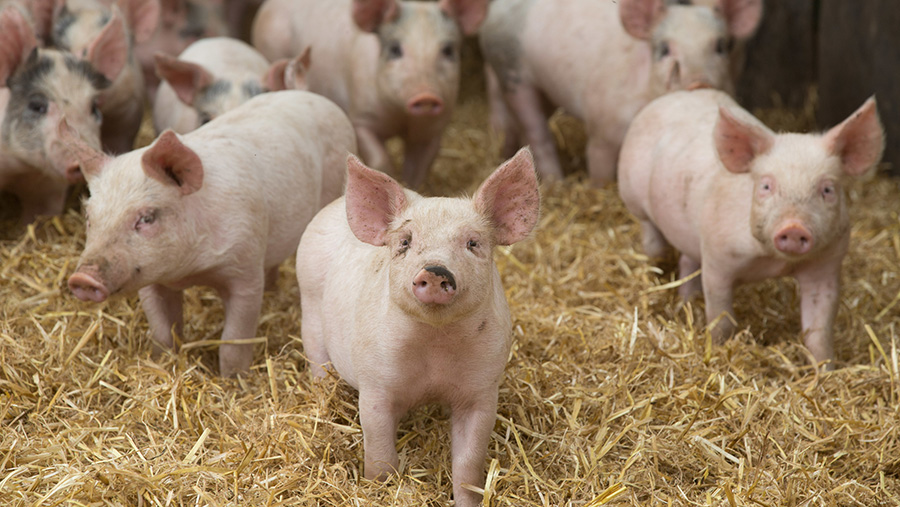Environment affects mood in pigs, finds study
 © Tim Scrivener
© Tim Scrivener A trial looking into pig behaviour has found welfare and environment can influence “proactive” and optimistic behaviour or “reactive” and pessimistic behaviour.
This proves a similarity to human “cognitive biases”, in which judgement is influenced by mood and personality, say researchers at Newcastle and Lincoln Universities.
See also: Farm’s farrowing tent brings welfare benefits to pigs
In a world-first experiment, pigs were housed in two distinct environments to create positive and negative effects on moods in study that appeared in the journal Biology Letters.
Two categories were used; pigs were either proactive or reactive.
The experiment
- Pigs were weaned at 4 weeks
- Commercial cross breeds PIC337 large white cross landrace
- 24 males and 12 females were assigned randomly
- Both environments had solid flooring, a slatted area and wooden blocks on chain
- More enrichment meant deeper straw and more space (more than 0.62m sq/pig)
- Ventilation and temperature controlled (28C, decreasing 0.5C daily to 19C
Proactive pigs
- Positivity is characterised by more active conduct and a consistency in behaviour
Reactive pigs
- Passive behaviour and being more changeable in responses.
Finding pessimistic pigs
Two bowls of feed were used in each environment, one containing sugar-coated sweets and a third containing coffee beans, thus providing a positive and a negative outcome respectively.
A third ambiguous bowl was introduced and researchers observed whether pigs approached it expecting more sweets or ignored it.
See also: Danish loose-housing trial puts emphasis on welfare
Professor Lisa Collins, University of Lincoln’s School of Life Sciences said: “The results of our study clearly show that those pigs living in a worse environment were more pessimistic, and those in a better environment were much more optimistic.
“Importantly, this finding demonstrates that humans are not unique in combining longer-term personality traits with shorter-term mood biases when making judgements.”
